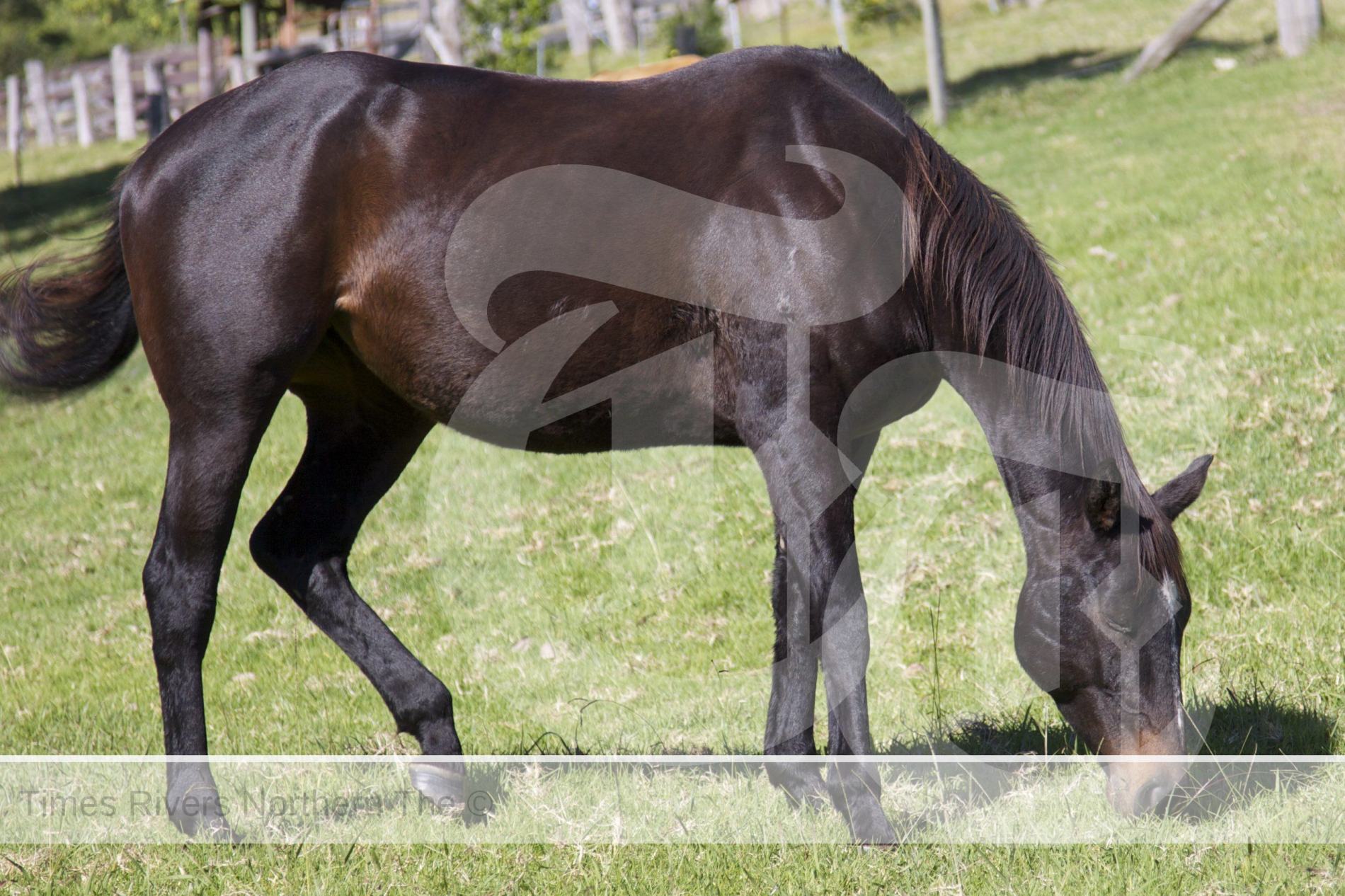TUCKURIMBA PUBLIC HALL
By Helen Trustum
The first Tuckurimba Hall was built in 1905. Sadly, this hall was burnt down in 1925. It was many years before another hall was built because they could not decide where to build it. The trustees became divided into two groups, the top enders and the bottom enders (residents of Delelvin) and no agreement could be reached where the new hall was to be built.
Agreement was reached in May 1933 when a meeting was held at the Coraki School of Arts. It was unanimously decided to build a new hall on the site of the old one. Five trustees were nominated. They were Fred Paff, Edward Jenner, Peter Gaudron, Walter Threlfo and Henry McCaughey.
The hall was built in 1937. A cyclonic storm in 1940 demolished the hall where it was rebuilt by district farmers, helped by donations of cattle and cash. The residents were very proud of the rebuilt hall and many school concerts, meetings, dances to raise money in World War 11 were held there. Young people came out from Coraki in trucks, rode horses from Dungarubba and because of the excellent dance floor, it was a popular venue.

Tuckurimba Hall taken in 1998
Tuckurimba Hall never had a supper room but prepared supper on trestle tables near the stage. Cakes and sandwiches were passed around the hall on platters. Tea would follow served from big tea pots where the water was boiled in cans over an open fire and carried inside. The children would sleep under the stools.
Land around the hall was used as a horse paddock for the school children attending Tuckurimba School during school hours. Electricity was connected to the hall in 1958. A switching on the light’s dance was held where everyone had a great time.
Performers: Alex Strong, Bruce McCaughey and Betty Fava played for many years, then Doug Blanch took over from Bruce. They called themselves “Melody Makers” and played at Green Ridge, Pidcocks Lane, Brandon Hall in Coraki, Ruthven, Bungawalbyn, Bora Ridge and Tuckurimba Halls.
Honour Rolls have always graced the walls of Tuckurimba Hall. One for 1914 – 1919 War and one for 1939 – 1945. The roll of Honour records members of the Australian Armed Forces who have died or returned home from serving overseas. They are now in a safe place at the Mid Richmond Historical Society Museum in Coraki for all to see.
George Hunt was President of the Tuckurimba Hall for many years. The hall declined during the 1970’s and 1980’s leaving no other choice but to sell. On August 9th 1997 the Tuckurimba Hall was sold to adjoining residents Rodney and Cherie Veral. Many local people have fond memories of their hall.

Jess Dolby, Nita Haynes and Marie Smith with their Red Cross Certificates.
PATRIOTIC LEAGUE
The Patriotic League was formed in the Tuckurimba Hall on July 2nd1940. President- Henry McCaughey Jnr., Vice Presidents L. Sutton and A.E. Campbell, Treasurer – Ted Leadbeater, Secretary – H.G. McCaughey.
Bridle race meetings and socials were held to defray cost of sending parcels of comforts for Christmas to local recruits at War. All men received a parting gift from the League and a khaki pullover from the Red Cross. In 1943, 42 parcels were forwarded and included a half pound cake made by local members. A welcome home social was arranged for the recruits returning and an invitation extended to the families. An Honour Roll was unveiled on Empire Day 24th May 1946 and was hung in the Tuckurimba Hall along with an Honour Roll from the First World War. In 1997 both Rolls were handed over to the Mid Richmond Historical Society at Coraki.

Honour Roll from Second World War.
RED CROSS
The Tuckurimba ladies met in the Tuckurimba Hall on Wednesday August 22nd 1917 for the purpose of forming a branch of the Red Cross Society. Those present were, Mesdames Hindmarsh, McLean, Barnard and Harris from Lismore, Simpson, Kennedy, Hunt, Smith, Tinkler, J. Paff, F. Paff, Margaret Maxwell, Jenner, Thurgood, Threlfo, McCaughey and Misses Hunt, Paff and Tinkler. Apologies were received from Mrs Mclaren, Mrs Casey, Mrs Smith and Mrs McLean.
Officers elected – President – Mrs Simpson, Vice Presidents – Mrs Tinkler and Mrs Hunt, Secretary – Miss Gladys Hunt and Treasurer – Mrs Kennedy.
Members took on the task of sewing and knitting for the troops and many items were forwarded to the Lismore Branch for despatch. On July 7th 1920 the group disbanded and reformed again on October 25th 1939 in conjunction with Coraki. Then in 1940 the group decided to change back to Tuckurimba and go alone. The branch has continued to function to this day, where they meet monthly in the Wyrallah Hall.

Red Cross Ladies – Mavis Garbutt and Barbara Schaffer
PROGRESS ASSOCIATION
The first meeting of the Tuckurimba Progress Association was held on June 1st 1890 at Alex Robertson’s residence, North Arm. Mr Baxter was paid 1/- (10 cents) for the use of Baxter’s Cottage near the Tuckurimba Provincial School for the purpose of holding their Progress Meetings. Their meeting on August 16th 1905 was held in the newly built Tuckurimba Hall.
President – William McLean, Vice President – James Fogwell, Secretary/Treasurer – Henry McCaughey.
Ref – Mid R. R. H. Society at Coraki, RRHS in Lismore, Northern Star May 22nd 1933, also from the writings of the late Monica McCaughey, Tuckurimba.
For more rural news, click here.





 Tweed Shire News2 years ago
Tweed Shire News2 years ago
 Motoring News2 years ago
Motoring News2 years ago
 COVID-19 Northern Rivers News3 years ago
COVID-19 Northern Rivers News3 years ago
 COVID-19 Northern Rivers News3 years ago
COVID-19 Northern Rivers News3 years ago
 Northern Rivers Local News3 years ago
Northern Rivers Local News3 years ago
 Health News3 years ago
Health News3 years ago
 COVID-19 Northern Rivers News3 years ago
COVID-19 Northern Rivers News3 years ago
 NSW Breaking News3 years ago
NSW Breaking News3 years ago






























